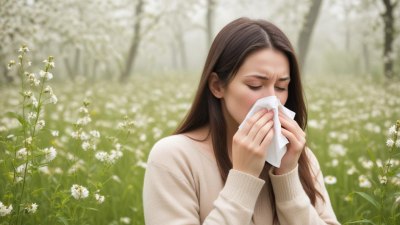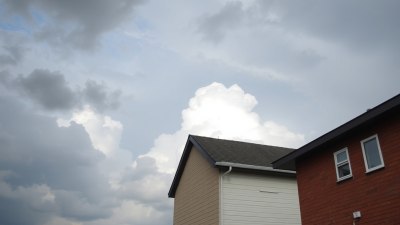Why Hot Days Make You Feel More Tired Than Usual
Explore why hot days increase tiredness, how heat affects your body, and tips to stay energized during high temperatures.

On hot days, many people notice an increase in tiredness, a feeling of lethargy, or reduced motivation to carry out daily activities. This experience is common and not merely a subjective sensation but a physiological response to elevated temperatures affecting the body's natural processes. Understanding why heat makes you feel more tired can help you manage your energy levels better during warmer months.
How Heat Affects Your Body's Energy Systems
Your body must maintain a stable internal temperature to function optimally, generally around 98.6°F (37°C). On hot days, the external temperature challenges your body’s ability to regulate heat. To combat overheating, your body activates various cooling mechanisms, including increased blood flow to the skin and sweating. These processes require additional energy and can divert resources from other bodily functions, increasing the sensation of fatigue.
When you sweat, your body loses fluids and essential electrolytes such as sodium, potassium, and magnesium. This loss of fluid can lead to dehydration if you don’t replenish it adequately. Dehydration reduces blood volume, lowering the efficiency of your cardiovascular system, making your heart work harder to pump blood. This extra effort can cause feelings of tiredness and decrease physical endurance.
The Role of Blood Circulation in Heat-Induced Fatigue
On warm days, your heart pumps more blood toward the skin to dissipate heat through radiation and evaporation of sweat. This redistribution means less blood is available for the muscles and organs involved in physical and mental activity. As a result, your muscles may feel weaker and your cognitive functions can slow down, which manifests as fatigue or decreased alertness.
Increased blood flow to the skin also leads to a drop in blood pressure in some instances, which can cause dizziness, weakness, or a feeling of exhaustion. This phenomenon illustrates how the body's efforts to maintain thermal balance can impact overall energy levels.
Impact of Heat on the Nervous System
The nervous system responds to high temperatures by adjusting the body’s homeostasis. Heat stress affects the central nervous system by altering neurotransmitter levels, particularly serotonin and dopamine. Changes in these brain chemicals influence mood, motivation, and fatigue perception. Elevated serotonin, for example, is linked to increased feelings of tiredness and can make hot days feel more draining.
Additionally, heat can impair sleep quality at night, which compounds tiredness during the day. Hot conditions might reduce the amount of slow-wave and REM sleep, essential phases for physical and mental recovery. Persistent poor sleep during periods of heat can lead to chronic fatigue symptoms.
How Heat Influences Physical Performance
Physical activities become more strenuous in hot weather. The body’s attempt to cool itself requires diverting energy away from muscles, while dehydration decreases endurance and strength. Elevated body temperature itself can cause muscle fatigue and cramps. Consequently, physical exertion feels more exhausting, and recovery times tend to be longer.
Furthermore, heat stress increases the production of lactic acid in muscles, which contributes to soreness and discomfort. These factors combined explain why athletic performance and general physical activity efficiency are typically lower during heat waves or very hot days.
Psychological Effects of Heat on Fatigue
High temperatures not only tax the body physically but also affect mental well-being. Heat increases irritability, reduces concentration, and can cause feelings of sluggishness. Psychological fatigue can intensify the sensation of physical tiredness, creating a feedback loop where the mind and body both signal the need to rest more than usual.
Studies have shown that exposure to heat affects cognitive tasks requiring attention, memory, and executive functioning. This decline in cognitive efficiency contributes to a feeling of mental exhaustion, which can make everyday activities seem more demanding and draining.
Heat and Sleep Disruptions Contributing to Fatigue
Sleep plays a critical role in energy restoration, but hot nights can severely impair sleep quality. As the ambient temperature rises, your body's ability to cool down efficiently decreases, making it difficult to fall asleep and stay asleep. This disruption results in shorter sleep duration and less restorative sleep phases.
Without proper rest, cognitive performance and mood degrade, and daytime tiredness becomes pronounced. The inability to cool down at night is one of the primary reasons why hot days are often followed by fatigue that persists beyond daylight hours.
Tips to Reduce Fatigue on Hot Days
Knowing why heat causes tiredness, you can adopt practical strategies to mitigate its effects. Staying hydrated is paramount; drink water regularly even if you do not feel thirsty. Consuming electrolyte-rich fluids can help maintain balance and prevent dehydration-related fatigue.
Limit strenuous activities during peak heat hours, usually between 11 a.m. and 4 p.m., when temperatures tend to be highest. If you must exercise or perform physical labor, take frequent breaks in shaded or cool areas and wear light-colored, loose-fitting clothing to facilitate heat dissipation.
Try to keep your environment cool at home using fans, air conditioning, or natural ventilation techniques such as opening windows during cooler parts of the day or night. Cooling your body before sleep can improve nighttime rest; consider a cool shower, lowering bedroom temperature, or using moisture-wicking sheets.
Importance of Nutrition in Combating Heat-Induced Fatigue
Eating light and nutrient-rich meals supports your body's energy production during heat stress. Heavy or fatty foods increase metabolic heat, adding to body temperature and feelings of sluggishness. Incorporate fresh fruits and vegetables rich in water content, such as watermelon and cucumber, which aid hydration and supply essential vitamins and minerals.
Adequate intake of B vitamins supports energy metabolism, while antioxidants from colorful produce help reduce oxidative stress induced by heat. Avoid excessive caffeine and alcohol consumption, as both contribute to dehydration and can exacerbate fatigue.
Understanding Vulnerable Populations
Certain groups are more susceptible to heat-induced fatigue, including the elderly, young children, and people with chronic illnesses such as cardiovascular or respiratory conditions. These individuals may have impaired heat regulation and require extra care to avoid heat exhaustion or heat stroke.
Pay attention to warning signs such as excessive sweating, dizziness, headache, muscle cramps, and confusion, which indicate more severe heat-related illnesses. Prompt action, including moving to a cooler place, hydration, and seeking medical help, is crucial to prevent complications.
When to Seek Medical Attention
Mild tiredness on hot days is common and generally manageable with rest and hydration. However, prolonged fatigue accompanied by symptoms like rapid heartbeat, fainting, severe headache, or nausea may signal heat exhaustion or heat stroke, which are medical emergencies.
If you experience these symptoms or if fatigue severely disrupts daily functioning despite preventive measures, consult a healthcare professional for assessment and guidance.
The Role of Climate and Urban Design
Urban areas often experience higher temperatures due to the heat island effect, where pavement, buildings, and reduced vegetation absorb and retain heat. This amplifies the feeling of tiredness in city dwellers compared to rural populations. Incorporating green spaces, reflective surfaces, and adequate shading in urban design can help reduce ambient temperatures, improving comfort and energy levels.
At a larger scale, climate change trends are increasing the frequency and intensity of heat waves. Understanding how this impacts human physiology and energy levels emphasizes the importance of public health strategies to prepare and protect vulnerable populations.
Conclusion
The sensation of increased tiredness on hot days results from a combination of physiological, psychological, and environmental factors. Your body expends extra energy to cool down, dehydration impairs cardiovascular efficiency, and heat alters brain chemistry affecting mood and alertness. Disrupted sleep, changes in blood flow, and heat stress on muscles compound the fatigue you feel.
By recognizing these influences, you can adopt lifestyle adjustments such as proper hydration, heat avoidance during peak temperature hours, cooling strategies, and balanced nutrition to manage tiredness more effectively. Awareness is particularly important for vulnerable populations who face greater risks during heat events.
Ultimately, understanding why hot days make you feel more tired equips you to protect your health, maintain productivity, and improve overall well-being during warm seasons.











